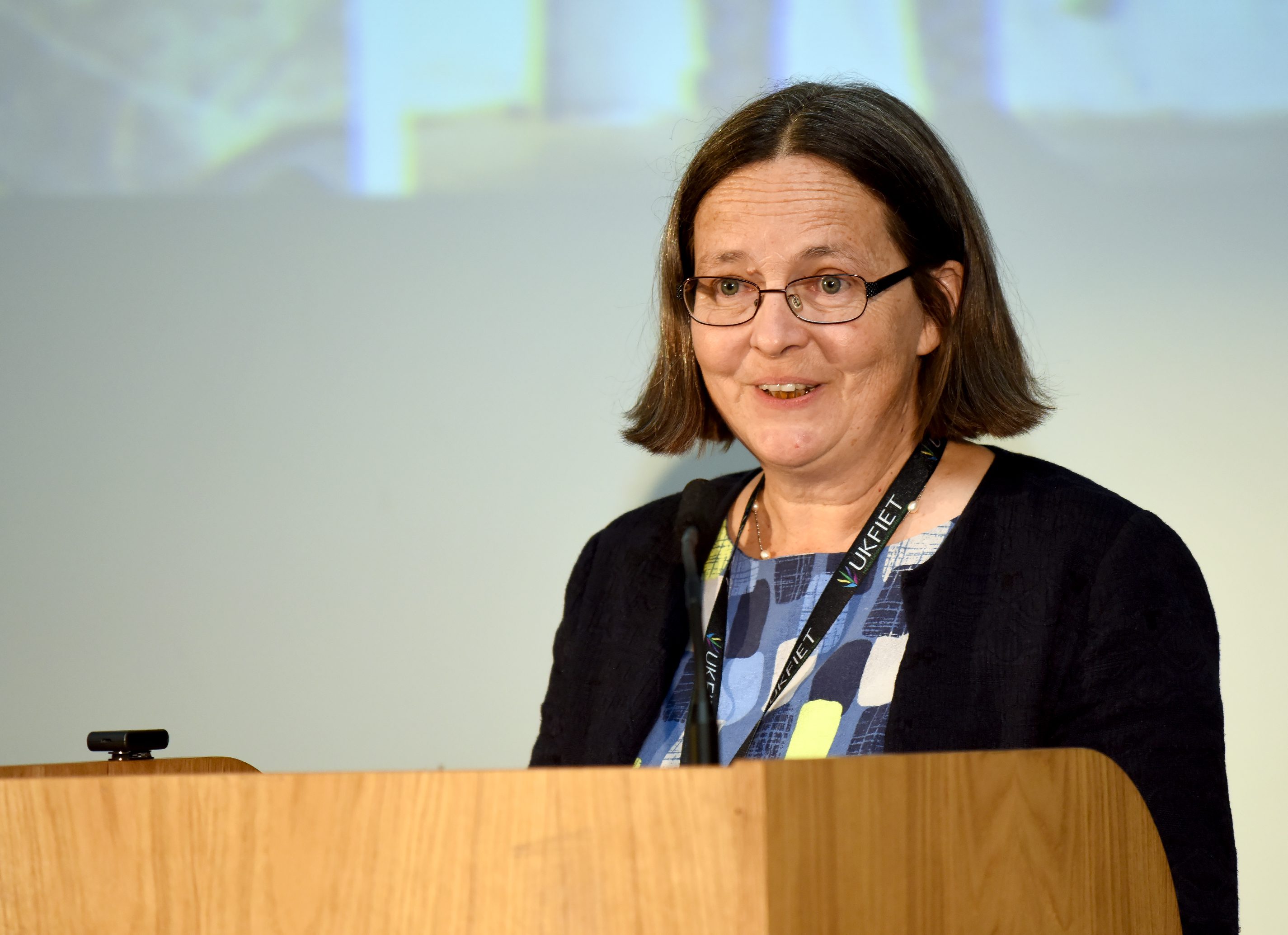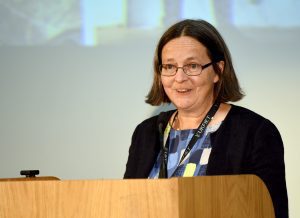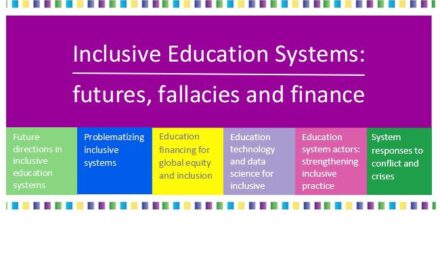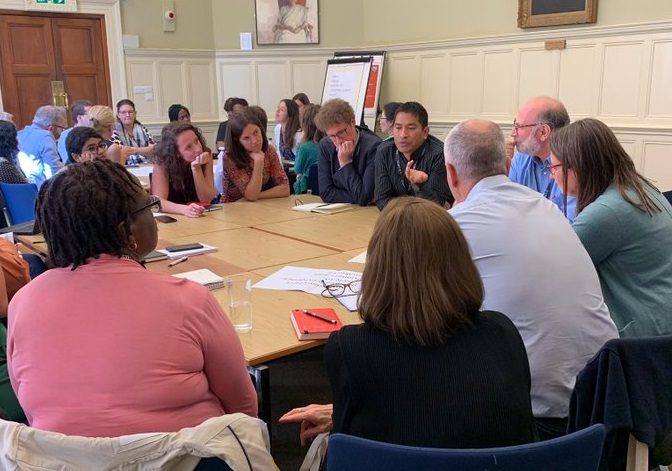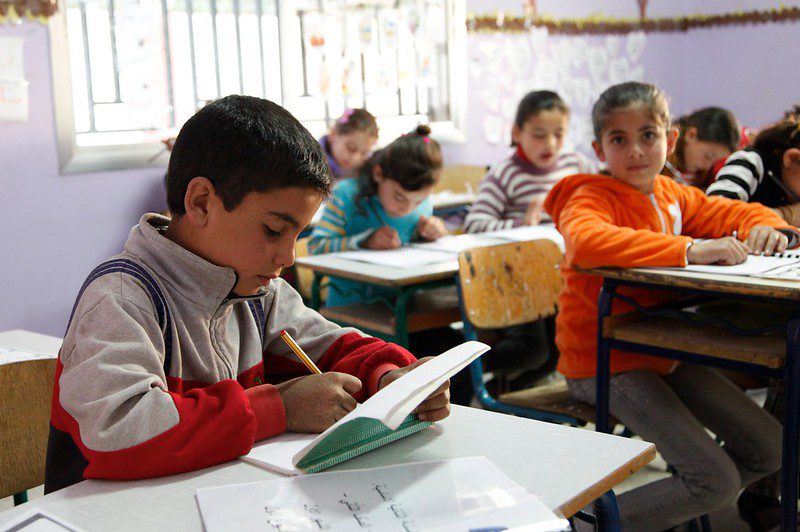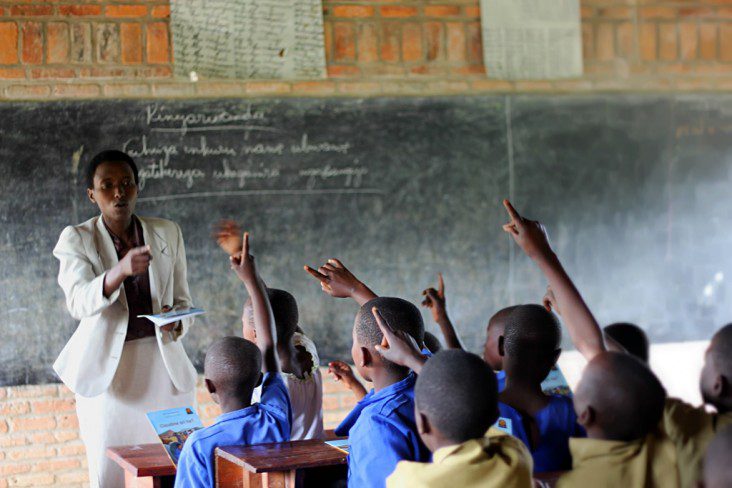We hope you enjoyed the BAICE plenary in the middle of the 2019 UKFIET conference and thought you might like to know more about how it came about!
As you might have guessed when Abebe, the young woman from Ethiopia, jumped up in your midst to tell her story about how she had struggled to attend school as a girl, this has been very much a collaborative project – and a venture into new ways of exploring inclusive education and learning, particularly through creative approaches to storytelling. Our starting point was to ask how a plenary on inclusive education could be made more ‘inclusive’ – to model ‘inclusion’ as well as talk about it – in order to engage with a diverse audience of educational and development practitioners, policy makers, activists and academics. This led to the idea of having some actors/characters planted in the audience who would get up and tell their stories at various points during the lecture. We were also keen that these stories would be rooted in and grow out of specific contexts and real lives in very different parts of the world.
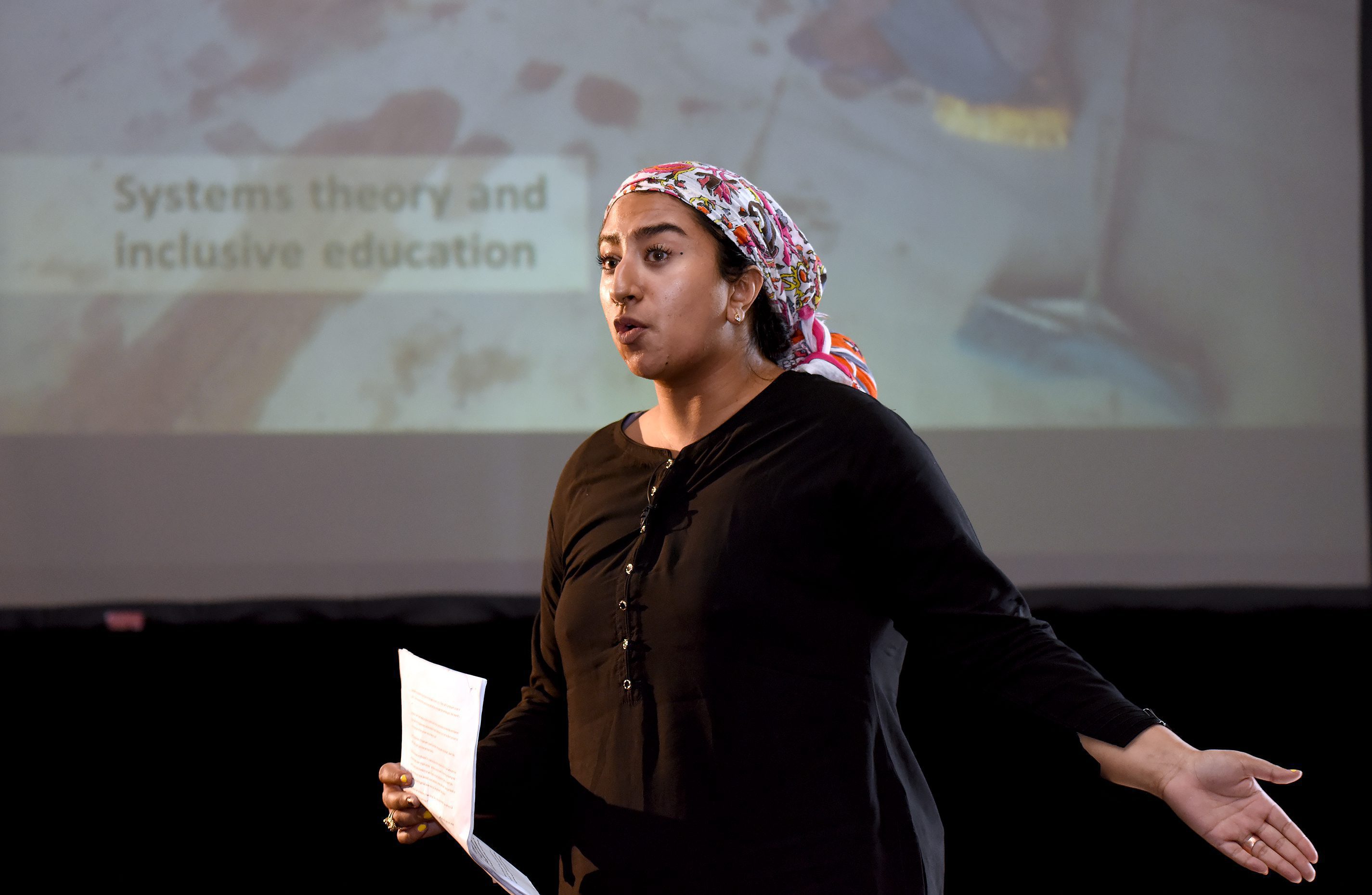 |
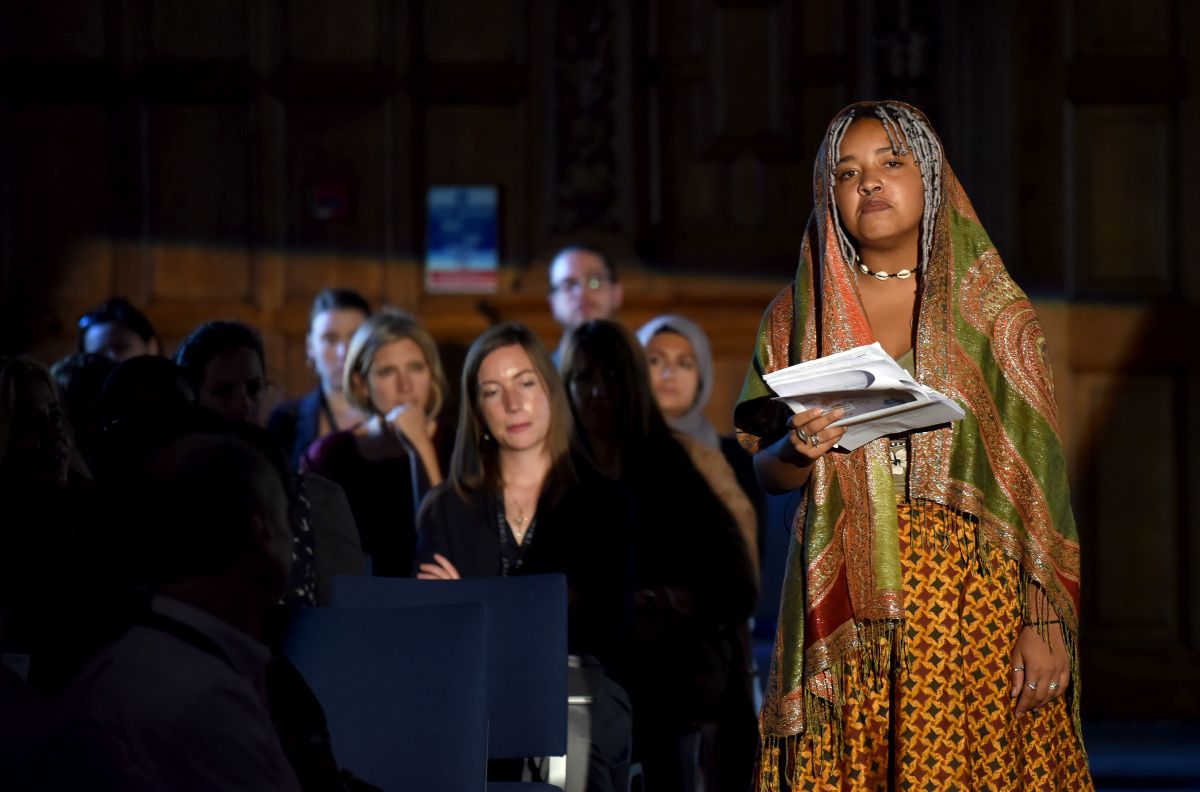 |
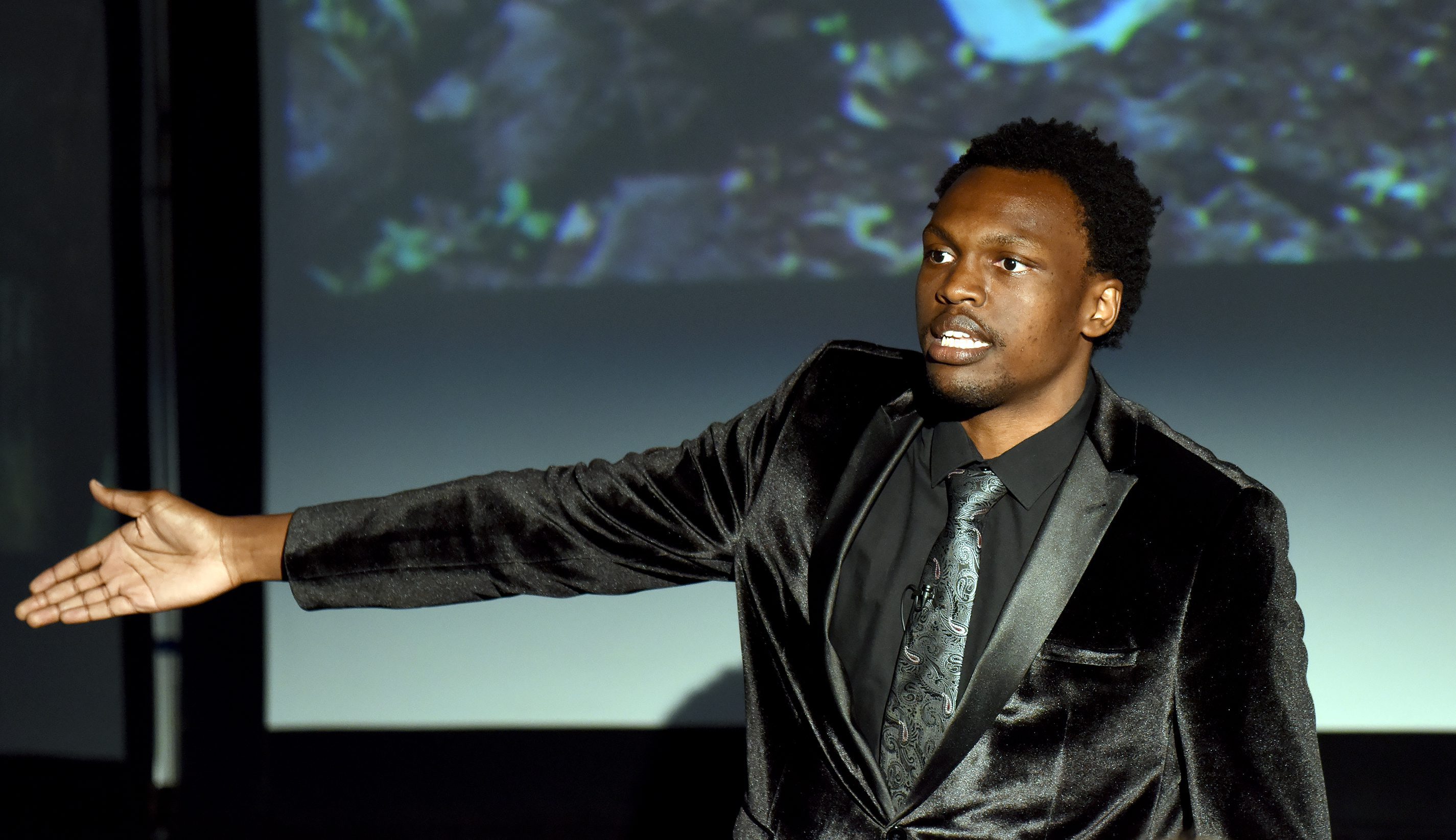 |
Thanks to funding from BAICE, we have been able to work as a cross-continent team to produce this presentation – with Turuwark Warkineh and Abiy Menkir in Bahir Dar University, Ethiopia; Amina Singh and Yukta Bajracharya from Word Warriors in Nepal; Gina Lontoc in the University of Santo Tomas, Philippines; Chris Millora and Anna Robinson-Pant at the University of East Anglia, UK: and Yasmin Sidhwa with Anusha Abbas, Theo Laird and Nelvin Kiratu from Mandala Theatre Company in Oxford (see footnote for more about the theatre company).
The process began early this year with us developing our own understanding of inclusive education systems, initiated by a literature review by Chris and discussions about what ‘inclusion’ might mean in the very different contexts of Ethiopia, Nepal and the Philippines. As researchers, we had already been working together as a university partnership within the UEA UNESCO Chair on Adult Literacy and Learning for Social Transformation, and shared an interest in adult learning and informal learning outside the formal educational system. Some of the initial questions we asked each other and reflected on in relation to the literature and our experiences included:
- How do various stakeholders/groups understand and/or define ‘inclusive education systems’? What are the most dominant discourses around inclusion in your community? What do you consider to be common misconceptions and/or fallacies?
- Who are included and excluded in formal (and nonformal) education systems? What do you see as the structural constraints and barriers to inclusion?
- What makes an educational system ‘inclusive’?
- Do you have experience of people/groups who do not want to be ‘included’? What reasons do they give?
- How can we begin to talk about ‘inclusive education’ in relation to adults?
- Do you (or the Government?) see ‘integration’ as similar to ‘inclusion’?
- What forms of collaboration could be possible between organisations or among actors within a single organisation? What is the potential for collaborating with non-school institutions such as INGOs, social movements, youth groups and/or community-based organisations?
- What learning opportunities/styles/spaces are at the fringes of the ‘formal’ system? What value would they bring if they are ‘included’ in the system?
- Based on your experience, what organisational culture and/or practices would best contribute to the creation of an inclusive education system?
- What are the limits and challenges of systems thinking in education? What alternative ways do you have about thinking about education and inclusive education?
- What specific constraints in this country context might prevent a ‘systems’ approach from working?
Each country team then designed a project to explore ideas about educational inclusion and discuss these issues with different groups in their local context:
- Amina and Yukta ran a workshop based on creative writing with teachers and educationalists in Kathmandu with the NGO Word Warriors who work with women across Nepal to reflect on their lives through stories and poetry (this resulted in the ‘letter to the Minister of Education’ that you heard – watch the video here);
- Gina and colleagues facilitated a world cafe with women farmers in San Jose, Nueva Ecija to produce a documentary (and this fed into the dialogue you heard between Elna and Maring – watch the video here);
- Turuwark and Abiy facilitated discussions with communities and educational providers in Bahir Dar (leading to construction of the stories you heard from Mrs Ansha – watch the video here – and the two housemaids – watch the video here).
We were excited to discover that Yasmin had been working on very similar issues around exclusion and inclusion in the UK context, facilitating drama workshops with young people in pupil referral units and looking at questions like ‘what makes you want to learn?’ ‘What makes you feel like a failure?’ The last story that you heard in the plenary – the podcast by Tachia on a London housing estate – is an extract from Mandala Theatre Company’s play called ‘Pipeline’ (working title) written by Avaes Mohammad and directed by Yasmin Sidhwa. You can attend their first reading in Oxford on Friday 11th October 6-8pm at the Burton Taylor Studio and the production will be touring the UK in 2020.
So this is not the end of the story! If you are interested in more, you can watch the documentary made by the UST Philippines team based on world café activities with women farmers and the video of the Nepal workshop facilitated by Word Warriors with teachers and other educationalists in Kathmandu.
One of our conference participants, the talented Dulce Pedroso, from A Thousand Words Consulting, summarised the keynote through the following graphic illustration: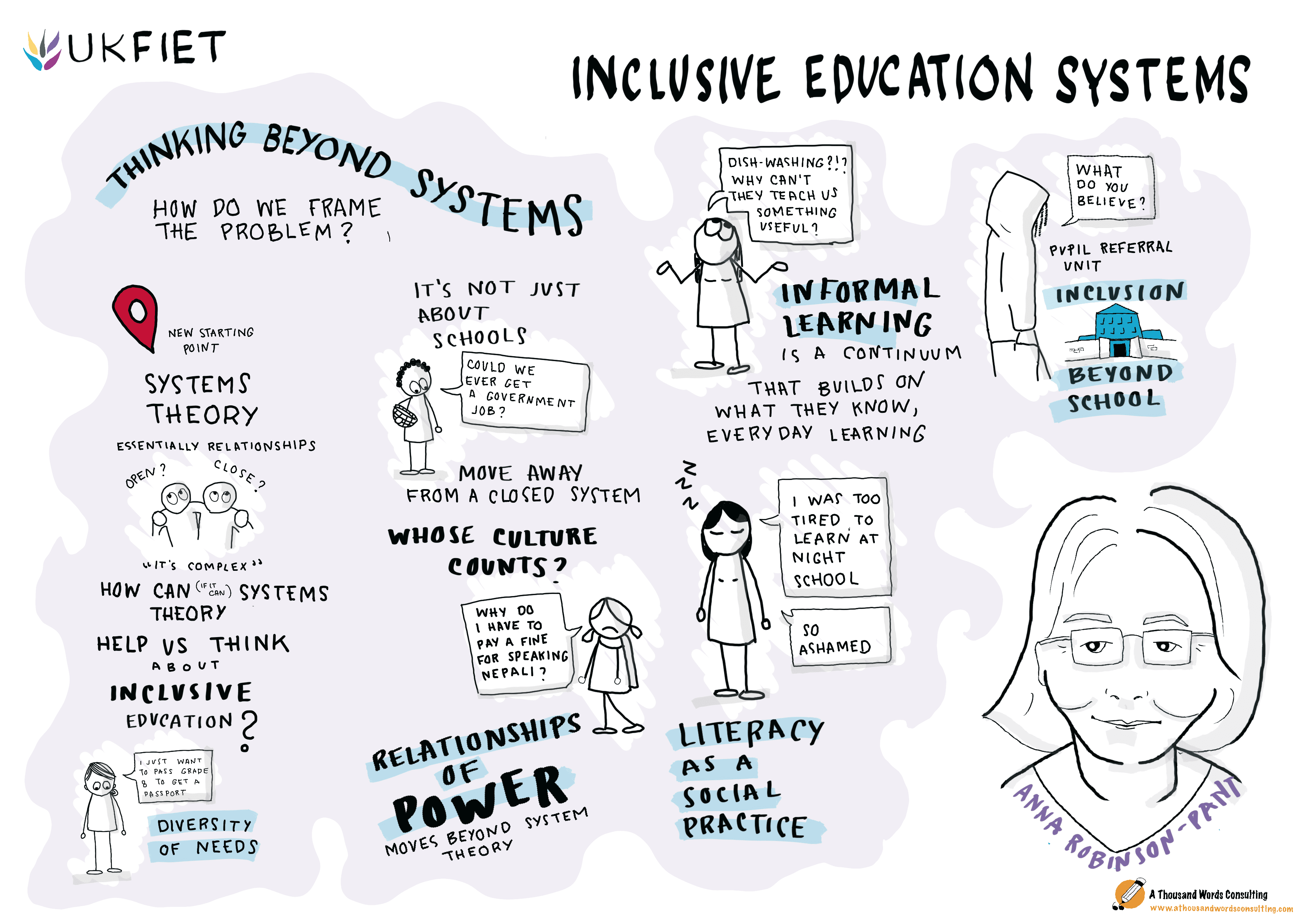
Footnote: Mandala is an Oxford-based Community Interest Company (CIC) that uses the power of theatre to change lives, build community, and foster social justice.
Mandala aims to connect people, enabling them to become global citizens through the arts. Central to Mandala as a diversity-led company is visceral theatre that uses social justice as a catalyst for creating art that is relevant ,giving expression to those whose stories are not heard and making them visible.

